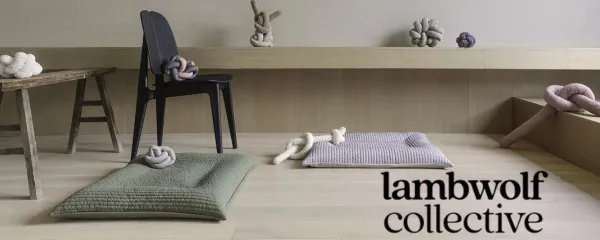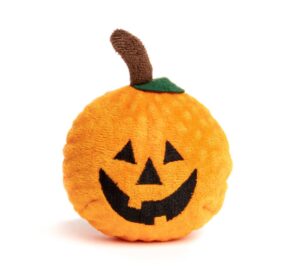
Beyond
Writing From the Heart: Turning Pet Memories Into Stories
Your dog’s silly habits deserve more than phone photos. That time your cat knocked over the Christmas tree makes a better story than most books. Writing about your pets saves moments that fade too fast.
Pet stories matter because they record real relationships. These aren’t just funny tales – they’re records of daily life with animals who shape our days. Writing keeps what matters before the details disappear.
Why Pet Stories Work
Pet stories connect because everyone gets them. Anyone who’s loved an animal knows the bond. Your specific moments – like teaching a rescue dog to trust or watching a senior cat’s routines – hit home with readers who’ve been there too.
Writing about pets helps you process feelings. Picking words to describe your rabbit’s personality or your bird’s morning habits makes you notice details you’d miss otherwise. These observations become the core of good stories.
Organizing Your Pet Memories
Random memories need structure before they become stories. Start by gathering everything – photos, vet papers, funny texts about your pet, social media posts. These bits hold specific details that make stories real.
Some pet parents organize memories into collections for college projects or creative work. For writing about animal behavior, pet psychology, getting help makes sense. Working with a writing service can turn personal pet experiences into proper papers that meet standards while keeping your real voice.
This works whether you’re saving rescue stories, putting together family pet histories, or making teaching content about animal care. Structure turns random memories into useful stuff.
Start With Small Moments
Don’t wait for a big drama to write about. The everyday stuff matters most. Write about your dog’s specific greeting after work. Describe how your guinea pig reacts to cucumbers versus peppers.
Small moments show personality better than big events. Your hamster’s exact 3am wheel time tells more than adoption day. Notice patterns – where your cat sits every morning or how your parrot reacts to certain songs.
Keep it concrete. Instead of “my dog is funny,” write “my dog carries his bowl to the couch, one piece at a time.” Specific details make stories stick and help readers see your actual pet.
Show Your Pet’s Real Personality

Every pet has quirks that define them. Your fish might react only to you at the tank. Your ferret might drag toys in a specific way. These habits separate your pet from every other animal.
Show personality through actions, not labels. Show your nervous rescue getting brave – write about the first time she let a stranger pet her. Show your lazy cat’s 2am energy through what actually happens.
Record the weird stuff especially. Your rabbit reorganizing his cage every Tuesday matters. Your tortoise loving yellow objects isn’t too small to write down. Strange habits make the best reading.
Pick the Right Details
Not every memory needs the same space. Focus on moments that surprised you or changed things. First walks matter, adoption days matter, last visits matter – but so do random Tuesdays when your pet did something perfect.
Use sensory details – how your cat’s purr feels in your hand, the exact sound of your dog’s collar, your bird’s feather texture. Physical stuff brings writing alive more than feelings alone.
Include the annoying parts too. Chewed furniture, escaped hamsters, and 5 am meowing are part of real pet life. Honest writing about hard stuff makes the joy more real.
Give It Structure
Pet stories need organization even when memories feel random. Try these:
- Timeline from adoption to now works for full pet biographies
- Group similar memories – training moments, funny stuff, health problems
- Seasons show how routines change through the year
- Problem-solution works well for rescue stories
- Day-in-the-life captures current routines before they change
- Before-and-after shows growth and change over time
Pick structure based on your goal. Social posts need a different setup than full books or school papers about animal behavior.
Write Through All Stages
Puppyhood gives obvious material – everything’s new and wild. But senior pet years matter just as much. Write about the shift from zooming puppy to older dog who takes stairs slowly.
Health problems make hard but important stories. Writing about sickness, getting better, or decline helps you process. These stories also help other pet parents going through the same thing.
Even sad endings deserve good writing. Memorial pieces honor relationships and help with grief. Many pet parents find comfort writing about their animal’s life and impact.
Make Stories Useful
Good pet stories work for many things. They’re family keepsakes, social content, blog posts, or stuff for pet magazines. Some become parts of bigger stories projects about rescue work, breed info, or training. Work uses range from pet business content to shelter adoption materials.
Think about your audience. Stories for other pet parents can include specific breed or care stuff. General readers need less technical info but more emotion everyone gets.
Start Writing Today
Pick one specific memory right now. Something from this week – a walk, meal time, a funny moment. Write it in 200 words with as much detail as possible.
Don’t edit while writing first drafts. Get the memory down, fix words later. The goal is catching moments before they fade.
Write a little bit regularly. Five minutes daily about one thing your pet did adds up fast over months. These bits become material for bigger projects later.
Your pet’s story exists whether you write it or not. Writing just makes it permanent and shareable. Start small, stay specific, and let your actual relationship with your actual animal guide what matters most.
Disclaimer: Articles in our Beyond category are independent. They are not overseen by our editorial team and may not reflect our opinion.






Comments